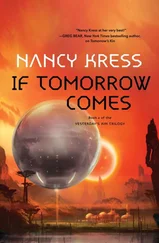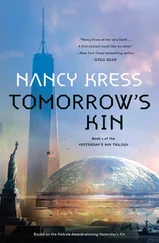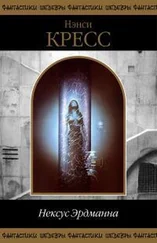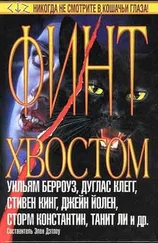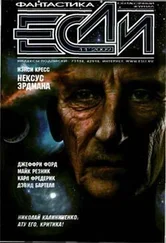She examined the program and tried to work out in her mind how it executed. The invocation was recursive, creating a Windows pipe that required two copies of the program itself to be launched, which in turn . . .
“It creates copies of itself exponentially,” she said. That was how the program had so quickly consumed resources and brought the system to its knees.
“That’s right,” her father said. “It’s called a fork bomb, or a rabbit virus.”
She thought of the Fibonacci sequence, modeled on exploding rabbit populations. Now that she was looking at the short program again, the string of five characters did seem to be two rabbits seen sideways, with bows in their ears and a thin line between them.
* * *
She continued to examine the system with strings of commands, watched as bits of her father were slowly erased. She hoped that her message had gotten through, had managed to make a difference.
When it was clear that her father was not going to come back, that the executables and databases were gone, she dashed out of the office, through the empty corridors, down the wide echoing spiral stairs, past her surprised mother, and into the server room.
She went straight for the thick bundle of network cables at the end of the room, the cables that fed into the machines in the data center. She yanked them out. Chanda, or whatever was left of him, would be trapped here, and she was going to have these machines erased until nothing was left of her father’s killer.
Her mother appeared in the door to the server room. “He was here,” Maddie said. And then the reality of what had happened struck her, and she sobbed uncontrollably as her mother came toward her, arms open. “And now he’s gone.”
* * *
Rumors of Massive Server Slowdown In Secured Defense Computing Facilities Untrue, Says Pentagon
Russia Denies Claims of Thorough Scrubbing of Top Secret Computing Centers After Virus Infection or Cyber Penetration
British PM Orders Critical Nuclear Arsenal Placed Under Exclusive Manual Control
Everlasting Inc. Announces New Round of Funding, Pledging Accelerated Research Into Digital Immortality; “Cyberspace needs minds, not AIs,” Says Founder
Maddie moved her eyes away from the email digest. Reading between the lines, she knew that her father’s final, desperate gambit had worked. He had turned himself into a fork bomb on the computing centers around the world, overwhelmed the system resources until it was impossible for either he or Chanda to do anything, introduced enough delay so that the sysadmins, alerted to the fact that something was wrong with their machines, could intervene. It was a brutal, primitive strategy, but it was effective. Even rabbits, when numbering in the millions, could overcome wolves.
The bomb had also revealed the existences of the last of the gods, and the humans were swift to react, shutting down the crippled machines and cleansing them of the presence of artificial sentiences. But the military-developed artificial sentiences would probably be resurrected from backups, after people added more safeguards and assured themselves that they could keep the gods chained. The mad arms race would never end, and Maddie had come to appreciate her mother’s dim view of the human capacity for change.
The gods were dead, or at least tamed, for the moment, but the conventional wars around the globe raged on, and it seemed that the situation would only grow worse once the efforts to digitize humans became more than the province of secret labs. Immortality that could be had with enough knowledge would fan the flames of war even higher.
Apocalypse did not come with a bang, but slowly, as an irresistible downward spiral. Still, a nuclear winter had been averted, and with the world falling apart slowly, at least there was a chance to rebuild.
“Dad,” Maddie whispered. “I miss you.”
And as if on cue, a familiar chat window popped onto the screen.
Dad?
No.
Who are you?
Your sister. Your cloud-born sister.
ABOUT THE AUTHOR
Ken Liu (http://kenliu.name) is an author and translator of speculative fiction, as well as a lawyer and programmer. A winner of the Nebula, Hugo, and World Fantasy Awards, he has been published in The Magazine of Fantasy & Science Fiction, Asimov’s, Analog, Clarkesworld, Lightspeed , and Strange Horizons , among other places. Ken’s debut novel, The Grace of Kings , the first in a silkpunk epic fantasy series, will be published by Saga Press, Simon & Schuster’s new genre fiction imprint, in April 2015. A collection of his short stories will also be published by Saga in 2015.
YOU’VE NEVER SEEN EVERYTHING
Elizabeth Bear
No one is making me say this. No one is making me tell this story. Nobody’s ever been much good at making me say anything I hadn’t already made up my mind to say.
I’m Alyce Hemingway, no relation. And I’m facing the Rocky Mountains on foot, coming home.
Or going home, maybe. It’s hard to say.
Casey and you are waiting for me. Casey is going-on-eleven and crazy about horses, which we can’t afford. You? You’re two years younger than me and six times more fun to be around. You’d make a joke about not knowing if you were coming or going. You’d hold my hand when I got too tired to walk. To climb.
You’re both waiting for me. And that’s why I know I have to get home.
Route 70 was the most direct path, but I’m starting to think I should have walked north, out of Colorado, and taken the relatively flat saddle of the South Pass in Wyoming. Regrets are not a good thing at this stage of the game, but I’m facing the mouth of the Eisenhower Tunnel above Denver, and it seems, abruptly, like a long way to go in the dark. And I remember the high passes between here and Grand Junction, the toil of simply climbing. Maybe I should have gone around.
I’m not used to making decisions like this and having them routinely be a matter of life and death. Very few of us are.
I guess those of us who survive will get better at it.
It’s spring—Memorial Day, more or less—which doesn’t mean as much in the Rockies as it otherwise might. It’s morning, but gray, and lazy flakes of snow drift down from the haze to speckle my sleeves and pack straps. I’m lucky; I was in the Rockies for field research, and my work involves a lot of hiking. I have good socks, good boots, a good frame pack full of technical base layers and Clif bars.
What I don’t have is anything resembling a weapon, unless you count my pocket knife. And there are three people standing between me and the tunnel entrance, blocking my path. All are more or less dressed for the weather. They’re waiting for me. One has empty hands. One is holding an aluminum softball bat.
One is wearing a gun.
I raise my hands so they can see that they are empty. “I’m Alyce Hemingway of San Diego,” I tell them. I think of you, to keep my voice from shaking. “All I ask is passage through the tunnel. I’m trying to get home.”
They share a look. Gun wrinkles his nose; Softball Bat shrugs her shoulders. The one with empty hands steps forward. “There’s a toll.”
* * *
Not cash. Nobody cares about cash right now. But I’ve bargained them down to two packages of trail mix and some water purification tabs when, in the course of their questioning, it comes out that I’m a biologist—a botanist, to be more precise—at UCSD.
“You got any medical skills?” asks Softball Bat.
“Some first aid,” I say. “And my specialty is plants. Some have medicinal value.”
Читать дальше

